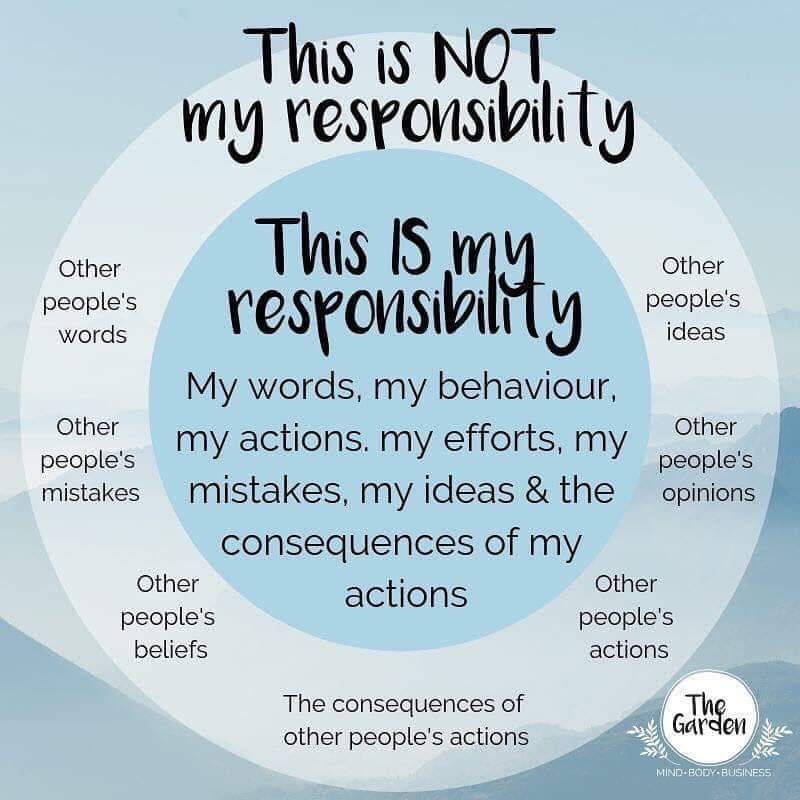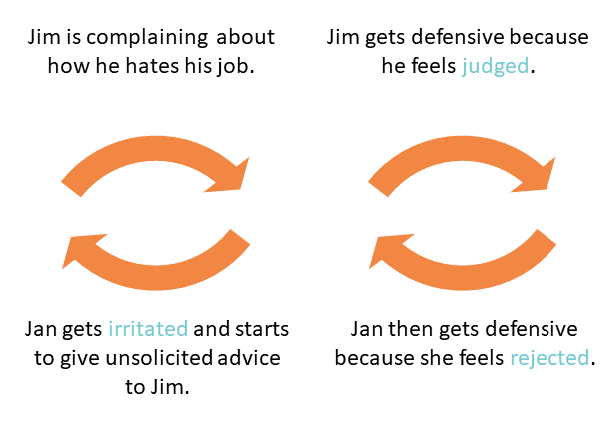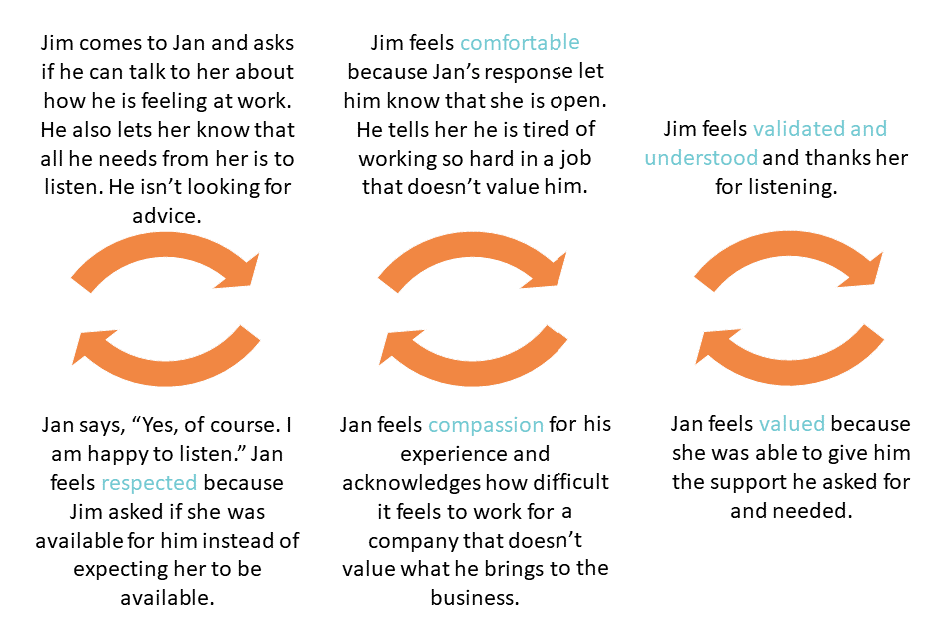Marriage isn’t easy by any means. So if you have marriage problems, you are not alone. It is a common human experience. But marriage does take work, all of the time. So how do you overcome marriage problems so the work creates connection?
Here are some things to think about:
There are 4 different communication styles. They are assertive, passive, passive aggressive, and aggressive.
The most effective style of communication is assertiveness. When you are assertive, you are advocating for yourself, while you are advocating for the other person at the same time. This is an open and connecting way of communicating.
An example would be, your partner asks if you can pick up something on your way home from work. You are already stressed thinking about your to-do list so you answer with, “I wish I could help you, but I won’t have time today. Could I get it another day this week?”
You first acknowledged the need but let your partner know that you weren’t immediately available. Most people understand “no.” If they don’t, that means they don’t respect your time or boundaries, so that is even more reason to say “no.”
When you are passive, you aren’t advocating for yourself, but you are advocating for the other person. This is what most might refer to as a “doormat.”
Passive aggressive communication is when you aren’t advocating for yourself or the other person. You have probably experienced someone being passive aggressive towards you if you left a conversation feeling confused and as if someone just metaphorically stabbed you in the back. This can also feel manipulative. Because it is manipulative.
Aggressiveness is when you are advocating for yourself but not the other person. You probably aren’t going to get your needs met when you are aggressive, and you may not like the response you could get from the other person. This type of communication can look like name calling and criticizing, and is generally toxic.
John Gottman, an expert on couples work talks about the 4 Horseman: criticism, defensiveness, stonewalling, and contempt. These are communication responses that keep couples stuck, and disconnected. Being aware if these patterns are how you and partner communicate is how you can begin to overcome many marriage problems. But you also need to replace them with healthier ways of communicating. Assertiveness – advocating for your partner while you advocate for yourself is one healthier choice.
One thing I notice when I work with clients (and I have been known to do myself) is to focus on the other. A focus on what you think your spouse “should” be doing differently so they will feel better.
Here is an example:
Jan listens to her spouse, Jim, complain everyday about how miserable he is at work. It is fair that if over time, Jan would get frustrated and tired if all Jim does is complain but doesn’t show any signs of doing anything about it. So she starts to suggest he begin looking for another job. He then gets defensive and a fight might ensue.
As a couples therapist, I look for vicious cycles of communication.
What I might observe here is missing information, like, when he complains, what is really going on underneath the complaining and what does he really need from Jan when he complains. I am also curious what is coming up underneath the frustration she experiences when he complains. Because if Jan and Jim came to me for couples counseling, it can typically start out with Jan telling me what Jim should do about his job so he will feel better, and Jim telling me what Jan should be doing on her end to feel better.
This is what we call a codependent behavior of over-caretaking.
Whether one is aware of this or not, the belief system behind over-caretaking is that others are responsible for your thoughts, feelings, behaviors, and physical and mental well-being, and you are responsible for others’ thoughts, feelings, behaviors, and physical and mental well-being.
The above example is one where both may be coming from a place of love, but they are also trying to manage their spouse’s emotional experience so they themselves can feel better. And unless Jim is asking Jan what he can do differently to feel better or vice versa, Jim is more likely going to get defensive when Jan is managing him. Jan will likely get defensive as well, and the vicious cycle will continue.
Over-caretaking also happens because it is much easier to focus on what other people could be doing differently, than to focus on yourself. This is because focusing on yourself might be scary or painful. Especially if the only time you focus on yourself, you are coming from a place of judgement. You may be telling yourself that if you need to do something different, then maybe there is something wrong with you. Well I am here to tell you, there is nothing wrong with you.
You are a human being and there is no such thing as a perfect human being. Give yourself some grace.
So what if you tried shifting the internal conversation from judgement to curiosity? For example, start by asking yourself questions like:
- Am I behaving in a way that matches my value system?
If your value system is being kind and respectful, then reflect back to see if you are approaching your partner with kindness and respect. - Am I getting my needs met by how I am approaching my partner?
- If not, what could I do differently?
Maybe go back to the styles of communication discussed above. Also go to the 4 Horseman link and see if you recognize any of these patterns in the way you and your partner engage one another.
Now let’s go back to how you overcome marriage problems when there is over-caretaking.
First, let’s look at what each person is responsible for and what they are not:

To show how you take responsibility for yourself, let’s take another look at Jim and Jan’s interaction.
If Jim is responsible for himself, it might be good if he tells Jan what he needs from her before he vents. He may need advice, or he may need her to just listen without judgment. Either way, Jan is aware of what he needs before he starts to vent.
Now, I also need to add, everyone’s assertive human right is they can ask for whatever they want. And they have the responsibility to be aware that the assertive human right of the person they are asking is they can say “yes” OR “no.”
In marriage, you aren’t required to be available to your partner 24/7. It is important that each party respects the boundaries of the other. But how one says “no” is important.
If Jan has had a long day and doesn’t have the bandwidth (or even interest at that time) to either give advice or listen without judgment, saying no to Jim’s request might look like this: “Jim, I know you need someone to talk to right now, but I am just not in the space to give you what you need. Can we talk about this at another time when I am, so I can give you what you need?”
If none of that happens, the VICIOUS CYCLE can look like this:

Clear and transparent communication, along with some vulnerability, is vital, and creates a VIRTUOUS CYCLE of communication.
Here is an example of a virtuous cycle of communication with Jim and Jan:

Remember there is no such thing as a perfect marriage or a perfect partner. Everyone has marriage problems at some point. There is no one way to overcome marriage problems. And it always takes work. However, if you start with the challenges of communication, most other problems will be much easier to solve.
Jacqueline V. Cohen is a Licensed Professional Counselor, and an ADHD Certified Clinical Specialist Provider working with couples having marriage problems in the first year. You can connect with her by email or to learn more about her practice and specialties, visit her website.



